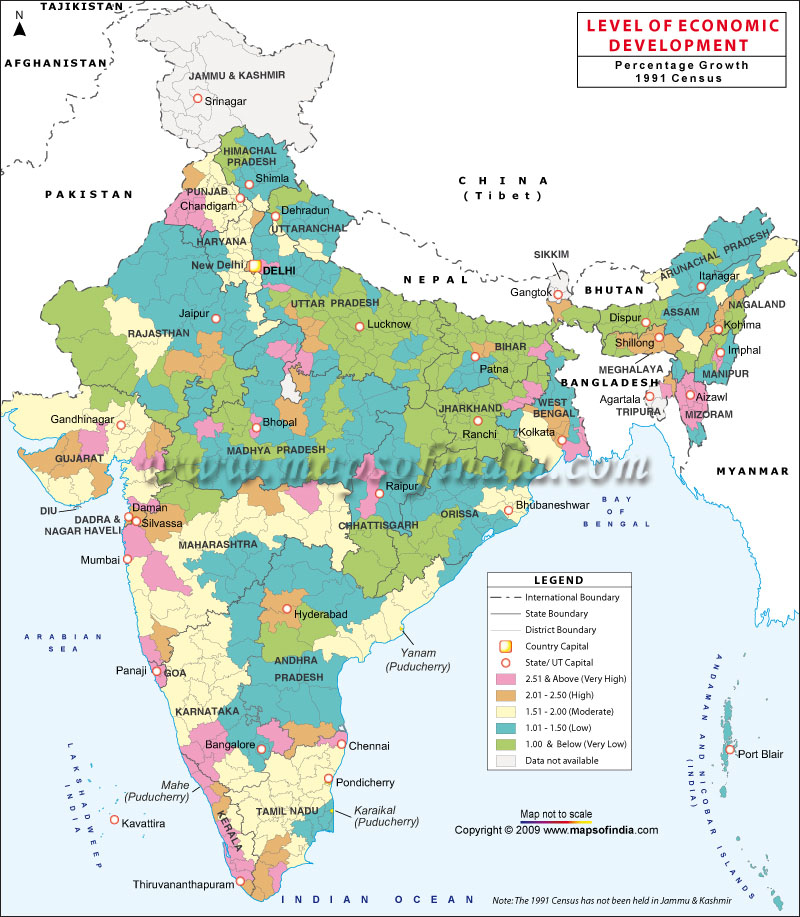
I've always thought of India as a country with a vast and impressive cultural environment. Its history is full of triumphs and discoveries. In ancient times, India was neck and neck with the Greeks when it came to advancements in medicine, astronomy, and mathematics. But the west soon advanced beyond the abilities of the east, leaving India as an emerging market, rather than a developed one.
However, India is one of the world's fastest growing economies. In the years leading up to the worldwide economic crisis, India was growing at a rate of about 9-10%. Unfortunately, 2008 led to booming inflation and slowed growth. Though the inflation has slowed considerably since then, so too has the economic growth, now at a rate of around 7.5%.
India has worked hard to improve its economic conditions. In the 1990's it developed a number of economic liberalization policies which encouraged significant amounts of foreign direct investment. In 2001 India became a part of BRIC (now BRICS), under the idea that Brazil, Russia, India and China were destined to be the next major providers of manufactured goods for the world. India also established the BRICS Economic Research group, allowing the member countries to bring their heads together and help each other move beyond the emerging and developing phases.
It seems to me that India has an excellent economic strategy. The country has reached out to other countries in similar economic straits, knowing that economic isolation is the last thing that will help the country grow. India understands the importance of research and development, prompting it to bring the BRICS countries together in their research, because the more minds focused on a project, the further along it will get. Where China has primarily been a location for cheap, unskilled labor, India has provided labor forces in the service and technology industries, through outsourcing from countries like the United States.
Like China, India is an enormously large country with a massive population. Many Indians leave the country for education elsewhere, but it seems as though enough return to prevent fatal brain drain.
Looking back on what I've learned about the history of India, I believe that the obstacle which threw it off it's course of advancement was the Imperial takeover by Britain. Though I'm sure Britain brought a great deal of western style development to India, it also interfered with India's eastern development. I can't help but wonder where India would be today had it not been colonized by Great Britain.
The developed countries of the world just can't seem to avoid sticking their noses into the business of less developed countries, can they? I don't deny that there is knowledge that could benefit emerging economies like India, but sharing that knowledge is seldom the goal of interference. Each country believes that they are acting in their own best interest, and that they should be. Perhaps it's true, that self-serving economic decisions provide the best engine for a country's growth. But I don't really believe that. And as I've said before, there are a number of different ways to act in one's own self-interest.
Far too often, developed countries believe that there is nothing that they can learn from countries that are less developed. But that's just another example of arrogance and shortsightedness. It comes back to the idea of comparative advantage. No one country can possibly have the absolute advantage in all areas, especially when you consider how widespread are industries have become. But if one country is highly efficient at a specific industry, yet needs to focus on a different one, because that's where their comparative advantage lies, isn't it in everyone's best interest to teach another country how to be as efficient as possible in that first industry?
Too many countries want to have a finger in every pie. Why can't they acknowledge that it simply doesn't make economic sense, and spread the wealth of knowledge with the rest of the world. If every country is able to produce whatever it is that they produce in the cheapest and most effective way possible, doesn't that make life better for everyone?
India has shown that it knows that it can't do everything itself. Being a part of BRICS, reaching out for foreign direct investment, these are ways of improving the country's overall productivity. India has the right idea, and I look forward to seeing it advance as years go by.


